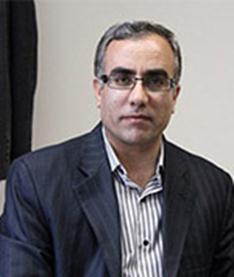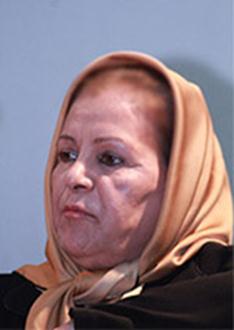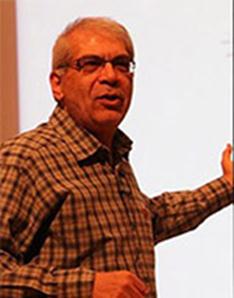Recording Memories for Documentation Process of Evolution
Projects That Address Oral History of Universities
Maryam Asadi Jafari
Translated by Ruhollah Golmoradi
2017-11-28
According to history of Kharazmi University -as the first university of Iran- history of establishment of university in Iran is about one hundred years. During this century, many universities were established before and after victory of Islamic Revolution of Iran, and have undergone a lot of historical, political, social and scientific ups and downs. Therefore, recording oral history of these universities aimed at sustaining them in history has great importance. The management styles, development of each university, process of entering different fields into universities and way of accepting professors, introduction of prominent personalities of each discipline, introduction of elites and their relations with foreign universities, study of universities in pre- and post-Cultural Revolutionary period to Imposed War, explanation of new academic achievements, teaching methods of professors and other topics should be considered in process of recording oral history of Iranian universities.
So far, various projects such as recalling compilation of oral history of Physical Education Department and setting up Museum of Sports History of Shiraz University of Medical Sciences, concluding contract of Ahvaz University of Medical Sciences with Foundation for Preservation Relics and Publication Values of Holy Defense in order to collect oral history of the war at this university, Kharazmi University On the eve of the university's 100th anniversary, releasing book of "History of Engineering Faculty of Shiraz University" by Minoo Nematollahi and start of Oral History of Isfahan University of Technology on the eve of the university's 40th anniversary, have been started. For this reason, Oral History Website of Iran has talked to doers of some of these projects.
Recording experiences of the college eminent
Dr. Bahador Bagheri, professor of Persian language and literature, and responsible for compilation of oral history of

University of Kharazmi referring process of recording oral history of the university, stated, "Since the next year (1397 SH) is 100th anniversary of establishment of University of Kharazmi, editorship history of the university is undertaken by Dr. Farasatkhah and its oral history is being compiled by me. Kharazmi University is the first university in Iran and I am interviewing university protagonists and great characters in this project."
He added, "So far, we have had about 20 interviews, and interviews will be ended in February. If we will have time and possibility, we are going to interview 10 other staff and professors who have good memories of social, political, scientific and cultural developments of the university. There are diverse people from different disciplines in list of interviewees to obtain some wealth information of history of the university. Oral history of Kharazmi University is implementing and preparing, and will be ready in next year in form of a book and film collection."
The editorial officer of oral history of Kharazmi University stated about necessity and importance of recording oral history of the universities: "Unfortunately, writing biography and memoir have not existed rich and strongly in Iran, and for this reason, there is not available accurate information from many scholars. In contemporary history, great characters and professors came and went, and we did not have any audio or video files of them. While there were tools like camera, but there is not available even a lasting dialogue from them."
The university professor emphasized, "At universities, we have great personalities who are old and are spending their last days of life. For example, Dr. Gholamreza Jahanshahlo, one of professors of mathematics and the faculty member of Kharazmi University, died two months after talking with him on April 5, 2017. His death was a huge lesion for our university, but I thank God for opportunity to interview with him. We need a lot of these memories and adventures that have not been recorded anywhere in our history."
Dr. Bahador Bagheri see intimately and purposeful interviews with university professors as part of cultural history of the country, and said: "These dialogues should be conducted with prominent, eminent and distinguished figures in fields of basic sciences, humanities, engineering and medicine in order to record their valuable memories and experiences."
He accentuated at the end, "one of our programs in celebration committee of the 100th anniversary of establishment of Kharazmi University was that we wrote a letter to Ministry of Science and asked them to notify all universities suggestion for recording oral history. These memories are recorded for posterities, associates, students and young faculty of future to benefit from their history, culture, civilization and science of their own era."
Oral History, Representative of Facts
Engineer Mino Nematollahi, retired faculty member of Shiraz Engineering Faculty, formulated "History of Shiraz

Engineering Faculty" spontaneously and based on conversation and oral narrative of professors of the faculty, and this book was published by Negareh Publication. She stated about process of compiling the work, "I was the first student of Faculty of Engineering in 1962, and after graduating I taught at the college as a faculty member for 50 years". After retirement, I started recording memories of Shiraz Engineering Faculty because of my interest in this scientific site and its founders."
Referring to brilliance of first graduates of the faculty in Iran and the world, she stated, "I felt that I should discharge related to founders of Faculty of Engineering and actions that took place in those years and those who created the college heartily. So, according to my own resources and experiences of 50 years participation in the college I started to write this book."
This university professor reviewed procedure of formation of Shiraz Engineering Faculty and added: "The College started with 5 professors, 40 students and one building. Late Dr. Manouchehr Vesal, father of analysis of Iran and the first head of Engineering Faculty of Shiraz, traveled to United States, interviewed Iranian Ph.D. students in the best universities of USA and urged them to return to Iran. After a year, number of professors reached 15, and the number increased to 80-90 persons in 1979."
Mino Nematollahi continued, "I interviewed protagonists such as Dr. Vesal, Dr. Ardeshir Idon and two old successful students who are now in high academic positions to compile book of history of Engineering Faculty. These people talked about educational situation at the beginning of establishment of the Faculty and status of dormitories, classes, teaching of professors and educational quality."
She said, "Importance of experience is more than anything else. New teachers can take better steps to improve quality of the college by studying past experiences and knowing their ideas. Oral history authenticity specifies real nature and quality of Shiraz Engineering Faculty in past and present."
Importance of reading documents before interview
Dr. Mojtaba Azhari, a member of faculty of Isfahan University of Technology, also has started recording oral

history of the university voluntarily. He stated about it, "I have taught in Isfahan University of Technology since 1983 and I am familiar with detail and nuances of the university and always involved somehow in university affairs and were in midst of the university adventures".
He added, "Most of events in the university have not been documented or recorded anywhere. For this reason, I spoke with chair of the university and my recommendation to start of recording oral history of the Isfahan University of Technology was welcomed. I remembered almost events of the university since 1983 till now, and I was looking for an opportunity to write them and recorded events of 1978 to 1983 based on memories and remarks of old professors."
The oral history collector of Isfahan University of Technology emphasized study before starting interview, and continued: "I reviewed minutes of the university council and then I interviewed 15 heads of Isfahan University of Technology. Of course, one of them had died, so I talked with his deputies, and some were also abroad that I interviewed them with Skype."
Azhari assessed attending in University and witnessing events one of advantages of improving process of interview, and stated: "I remembered management period of most of the heads and sometimes memories and events were forgotten, I reminded parts of them to complete material. These memories include from student demonstrations to scientific and developmental activities."
He has not limited project of recoding oral history of Isfahan University of Technology to managers, and remarked: "I have spoken with three of the first entry students of this university, who are now eminent figures, to present also student vision on the university. I also had a panel with six of the old staff, but if I were to talk also with a large number of professors, it would take more time."
This faculty member of Isfahan University of Technology emphasized importance of documenting history of universities and added: "procedure of changes from past to now become clear and explicit in recording oral history. Once people had to jump on a canal to enter university, but facilities of the university is not now comparable to the past. History is sweet, and when it is expressed in memories, it looks more sweet and nostalgic. So recording memories of universities is essential for documenting evolution of academic environments for the posterity."
Number of Visits: 5004








The latest
- 100 Questions/ 1
- Oral Narratives: An Open Window into Cultural Discourse
- Prerequisites and Methodology for Compiling Oral History
- Third Regiment: Memoirs of an Iraqi Prisoner of War Doctor – 1
- Exploring The Concept of Time, Place and Narrator in the Interview Process
- Memories of the wife of the martyr Seyyed Mohammad Ali Jahanara
- The 371st Night of Memories – 2
- Oral History News – August-September 2025
Most visited
- Medal and Leave - 11
- The 371st Night of Memories – 1
- The 371st Night of Memories – 2
- Oral History News – August-September 2025
- Memories of the wife of the martyr Seyyed Mohammad Ali Jahanara
- Exploring The Concept of Time, Place and Narrator in the Interview Process
- Third Regiment: Memoirs of an Iraqi Prisoner of War Doctor – 1
- Prerequisites and Methodology for Compiling Oral History
From Javanrud to Piranshahr
The Memoir of Reza MohammadiniaThe book From Javanrud to Piranshahr recounts the life and struggles of Commander Reza Mohammadinia, who spent part of the Iran–Iraq War in the western and northwestern regions of the country. During those years, he held responsibilities such as deputy commander of the Seventh Region of the Islamic Revolutionary Guard Corps (IRGC), acting head of the Javanrud district, service on the southern fronts, director of ...
Tactical and Strategic Analysis and Limitations
The present paper, entitled “A Critical and Scholarly Study of Dr. Hossein Alaei’s Two-Volume Book: Tactical and Strategic Analysis and Limitations”, is a research work that examines and evaluates the two-volume book “An Analytical History of the Iran-Iraq War”. In this study, the strengths and weaknesses of the work are analyzed from the perspectives of content critique, methodology, and sources.Clarifying the Current Situation; Perspectives of the Oral History Website
The definition of a “journalist” and the profession of “journalism” is not limited to simply “gathering,” “editing,” and “publishing breaking news.” Such an approach aligns more with the work done in news agencies and news websites. But now, after years of working in the field of books for various news agencies, newspapers, and magazines, when I look back, I realize that producing and compiling content for ...

